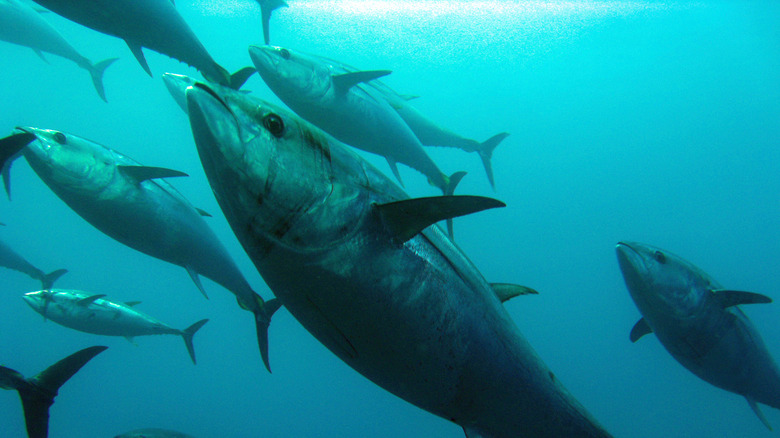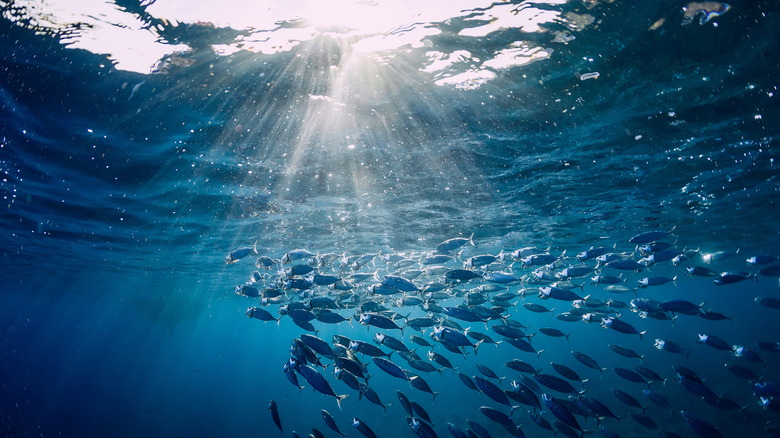How Sustainable Fishing Has Become A Priority For The Tuna Industry
The numbers for the tuna industry are sobering. One report, published in the journal Aquaculture and Fisheries, synthesized data and research from various tuna studies, including the findings from Fisheries Research, which quantified a 1000% increase in tuna harvesting over the last 60 years.
According to the Food and Agricultural Organization, more than 6 million metric tons of tuna fish are fished annually. In addition to the concern about the volume of the current catch is the vast expansion of the fishing grounds. In the 1950s, tuna was fished primarily in the Pacific Ocean, mostly in the waters off the coast of North and Central America, per NPR. Today, however, tuna is fished all over the world, the outlet explains. Anywhere tuna swim, even in the deep ocean, they are stalked by commercial fisheries.
To address this, the International Seafood Sustainability Foundation, in collaboration with advocacy groups, marine research projects, environmental organizations, among others, continues to push for sustainable fishing and conservation in the tuna industry. The foundation's 2021 annual report, titled "Transparent Accountability Across Tuna Industries," covers its efforts to further tuna and ocean conservation, SeafoodSource reports.
ISSF president Susan Jackson shared that transparency and accountability are only possible if people share data and information and work together, writing, "We can't make adjustments or fill gaps until we know where or why something is broken, what is missing, or whether previous actions or interventions have been effective."
Threats and solutions
Claims of overfishing aren't the only accusations made regarding the commercial tuna industry's lack of sustainable practices. Allegations of illegal and unreported catches, human rights violations, and the bycatch of threatened species, such as blue sharks and sea turtles, abound as well, according to the coalition Friends of Ocean Action.
These multiple, continued issues have led the Global Tuna Alliance, World Economic Forum, and Friends of Ocean Action to draft the 2025 Pledge Towards Sustainable Tuna (25PST). The agreement, according to SeafoodSource, is voluntary and expands on the previous Tuna 2020 Traceability Declaration (TTD, which ended in December 2020). Those who sign the agreement will focus on various aspects of sustainable tuna fishing, including transparency, environmental sustainability, and social responsibility.
According to the Global Tuna Alliance, TTD received support from commercial leaders, civil society organizations, and governments. The hope over the next few years is that 25PST will be able to continue what TTD started, on through 2025 and the next pledge for sustainable tuna fishing and industry best practices — a priority many are working to make reality.

